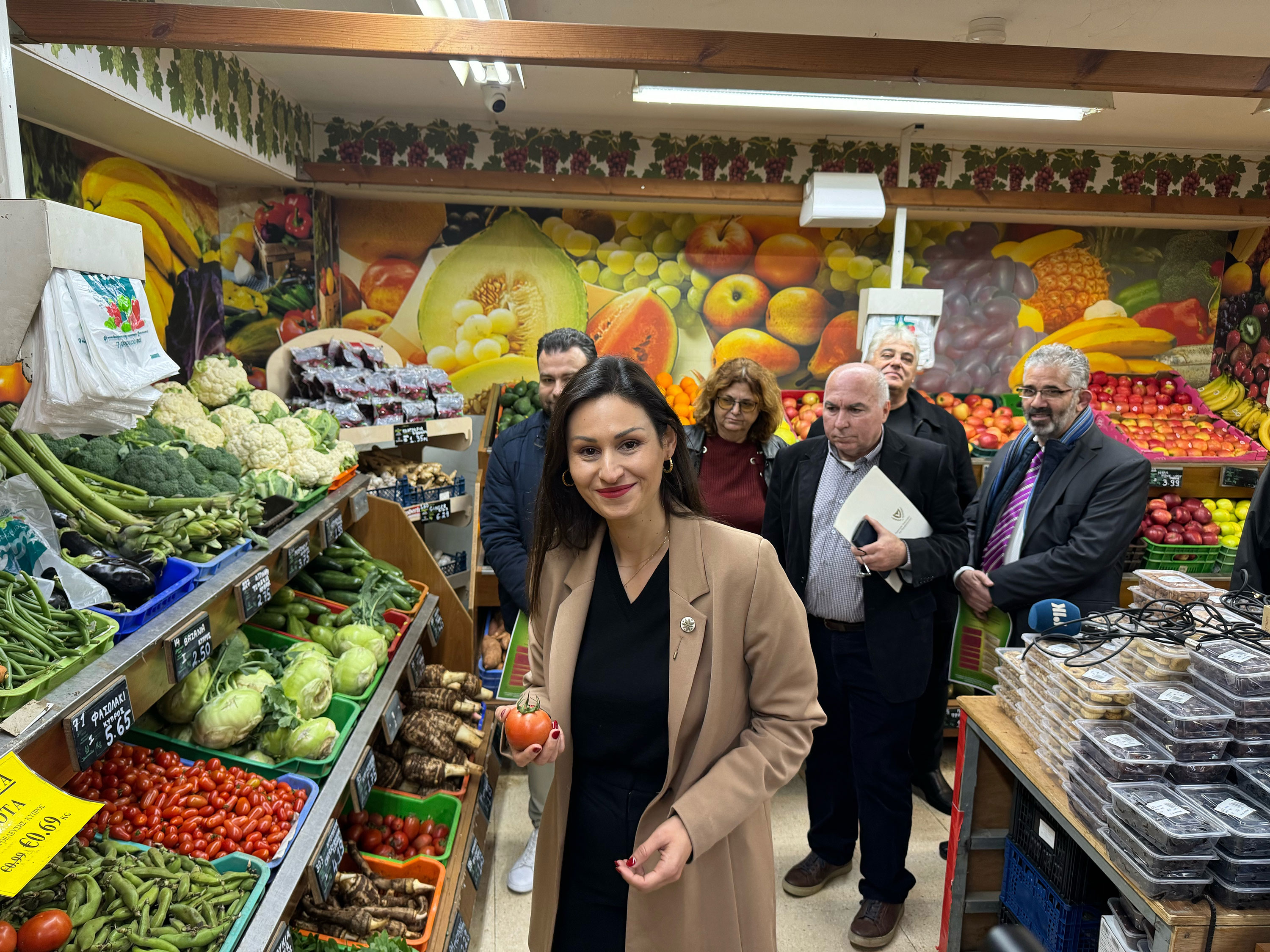The Cypriot market is well-stocked for the festive season, with no issues in product quality or compliance, Agriculture Minister Maria Panayiotou assured on Monday after inspecting supermarkets in Larnaca.
Slaughter volumes range between 30,000 and 40,000, consistent with historical levels.
Speaking after her visit to a supermarket, Panayiotou explained that her tour is part of the ministry’s customary inspections during the holiday season.
“This year, we are in Larnaca. Our aim is to monitor standardisation, adequacy, and compliance with the regulations and specifications we have set. We want the products reaching consumers to be of high quality,” she said.
According to the minister, feedback from officials and relevant departments confirms there are no issues this year, and the market remains adequately stocked.
During the ministry’s last inspection tour, competent officials had introduced the ‘e-kofini’ (e-Basket).
A year later, the project has since been upgraded and is now available as a mobile app. Consumers can download it to view average prices of fruits and vegetables, both at the producer and consumer levels, in a more user-friendly format. This tool offers consumers greater transparency and price monitoring capabilities.
“This is an important tool in our efforts to reduce the price gap between producers and consumers,” Panayiotou emphasised.
When asked about concerns raised by a shopper regarding high prices and the need to address affordability, the minister referred to the government’s targeted support for consumers.
“The government has taken, is taking, and will continue to take measures to support Cypriot citizens, particularly the middle class,” she said, noting that over €500 million in aid has been allocated to support the public.
She added that the number of beneficiaries for the Christmas support package has increased by 40,000, bringing the total to 100,000 recipients.
Regarding the agricultural sector, Panayiotou stressed the government’s financial tools under its primary sector strategy, which aim to provide producers with permanent infrastructure to protect crops from extreme weather and reduce production costs.
“Our goal is to improve the quality of life for people through permanent solutions rather than through subsidy-based policies,” she added.






Click here to change your cookie preferences